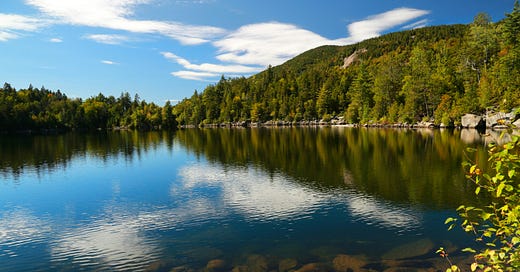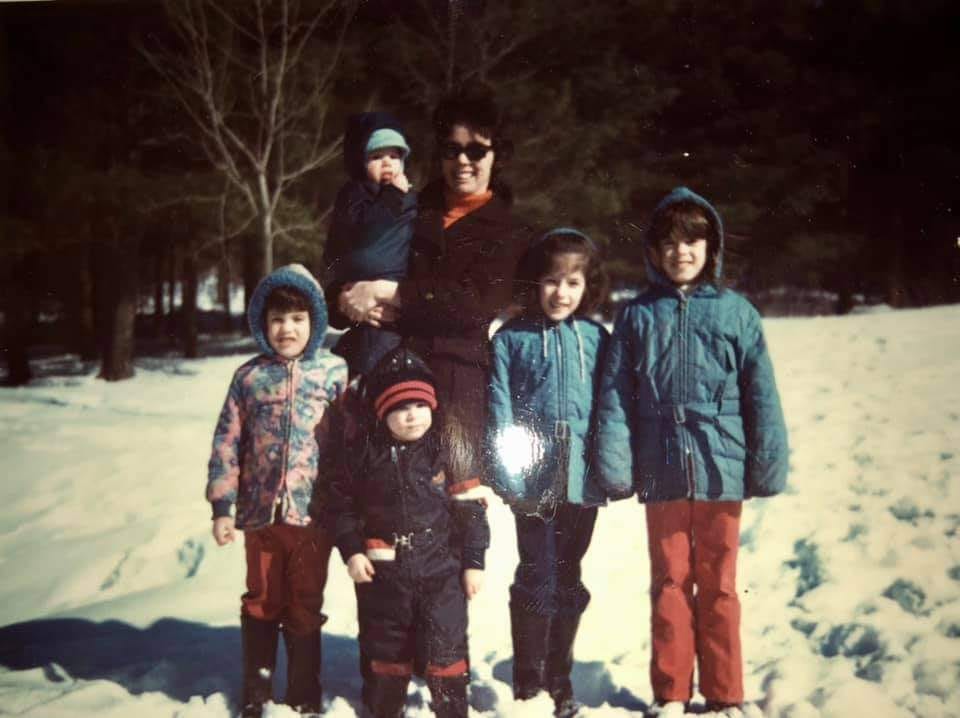Photo of a lake in the Adirondack mountains by Gary Yost on Unsplash
Republican Senators are proposing the most far-reaching and indiscriminate sale of public lands in modern history. It’s part of a budget reconciliation bill that President Trump is pushing to get passed by July Fourth. As a refresher, when the so-called One, Big, Beautiful Bill Act was winding its way through the House of Representatives, Republicans tried to sneak in a provision that would have sold 500,000 acres of public land. It was removed after people across the political spectrum banded together to voice against it. Now, the Senate is pushing an even more extreme version. They want to sell off 3.3 million acres—roughly four times the size of Rhode Island, our smallest state. Once these lands are sold, they’re not coming back.
Let’s be clear. The federal government does not own these lands; they manage them in trust for the American people. The sale is being snuck into an enormous budget reconciliation package for three reasons.
First, Republicans hope to eliminate public debate, input, comment, review, or even awareness in many cases by getting this done quickly. The reason? The sale of public lands is unpopular. Budget reconciliation allows legislation that changes spending, revenues, or the debt limit to pass with a simple majority vote in both houses of Congress. That means Republicans have the votes to pass some form of this bill in the Senate and Democrats will be unable to use the filibuster to stop them. The legislation would then go back to the House of Representatives where Republicans also have a majority.
Second, Republicans are being disingenuous or outright lying about why they want to sell our public lands while hiding who actually benefits. They are stating that they intend to use the sale to support local economic growth and promote the development of affordable housing. Republicans hope that people will say “That’s not so bad. We’re in the midst of a housing crisis.” That issue, though, does not stem from a lack of available resources; it also will not be resolved by this bill. What will happen is the destruction of precious ecosystems across the country; the displacement or outright annihilation of thousands of native plants, species, and animals; and the theft of public lands that belong to all of us in order to provide benefits to a minutely small percentage of us.
Critics across the political spectrum agree that this legislation (a) does not propose any specific housing development plans and (b) creates an environment that is ripe for fraud, abuse, and cronyism. It only includes extremely vague language about how the land may be used while failing to include any safeguards to prevent its misuse or over-development. Unlike past proposals, the bill also does not limit sales to lands that have already been identified for disposal due to underuse or other issues. That means more than 250 million acres of prime public land could technically qualify for sale—roughly the equivalent of Texas, California, and New York combined; and the door has been shoved wide open for wealthy private interests to profit financially through logging, drilling, and other ventures that do not benefit the public at large.
In fact, other sections of the bill explicitly endorse these outcomes by limiting protections for recreation, wildlife, and climate while prioritizing the development of oil, gas, and timber. For example, the bill cuts the royalty rates paid by private companies to extract oil, gas, and coal from public lands; creates long-term timber contracts that essentially privatize public forests; and weakens the National Environmental Policy Act (NEPA) in ways that benefit private interests—like allowing private developers to pay so that they may skip judicial review and public input.
Third, the theft of our public lands is one of the many inegalitarian ways that President Trump and Republicans in Congress propose to fund tax cuts that primarily benefit the wealthiest Americans. I’m going to post more about this soon, but the gist is that the One, Big, Beautiful Bill Act will create the largest upward redistribution of income and wealth in American history through a combination of tax cuts, program cuts, and budget increases. That’s saying a lot given the Grand Old Party’s (GOP) history of stealing from the “bottom” 99 percent in order to provide benefits to those at the very top. I wrote about that here.
Again, President Trump is pressuring Congress to pass this bill by July Fourth. What can you do? Speak out. Take a minute to call or write your elected representatives in the Senate and the House—regardless of their political party. Remind them that they work for you and tell them to take their hands off our public lands. You may think that voice is ineffective; however, as mentioned, public outcry already helped remove 500,000 acres of public land sales from the House version of the bill. We can do it again.
Another important way to make your voice heard is by talking to everyone you know about your favorite hiking trails, swimming holes, fishing or hunting spots, picnic areas, camping grounds, and so forth. Public lands are a sanctuary for humans and wildlife alike. You may not know where people stand politically but it is highly likely that they have personal connections to public lands. Once you start talking about yours, they will realize how much this bill affects them too.
Finally, help raise awareness online. Post your concerns with the bill and make sure to include your own stories. My personal stake in this fight is that I grew up without a lot of financial resources. What I did have were parents who deeply valued education, travel, and family bonding. We traveled quite a bit on a very tight budget—often thanks to federal and state parks and camping grounds. We also relied on public lands to swim, hike, and picnic year-round. Below is a picture of us enjoying one of our many winter picnics. I’m the swanky one in the floral coat. My memories of these times are precious, priceless, and immeasurable. I am certain other Americans, regardless of their political persuasions, have many of their own.
Author’s picture from a family picnic on public lands
If you’re uncomfortable posting your own stories and concerns, it is helpful to like, share, and engage with other people’s posts. Resistance looks different for everyone, but engagement is the key. That means showing up, however that makes sense for you, is important and effective.
Public lands belong to all of us. Let’s work together to keep them in public hands.
In solidarity,
Jody Longo Schmid





